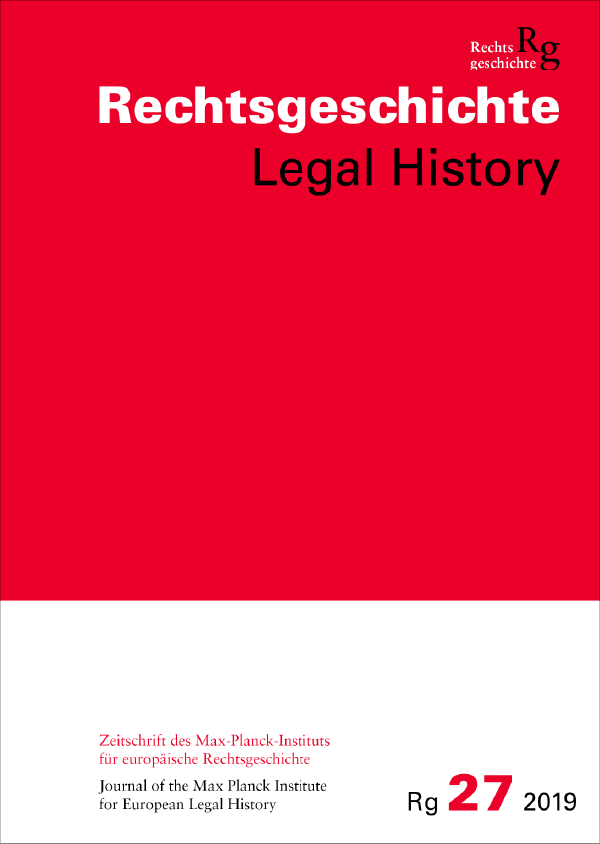Indian Marriage Before and After the Council of Trent: From pre-Hispanic Marriage to Christian Marriage in New Spain
DOI:
https://doi.org/10.12946/rg27/090-104Schlagworte:
Marriage history, Trent, Indian marriage, pre-Hispanic marriage, canon law in colonial Spanish AmericaAbstract
This article, based on the canonical norms and the manuals for parish priests in its various modalities, analyses the problems of assimilating marriage practices among Indians, as well as the discussions and the solutions adopted by the first canonists of New Spain. These relied on natural law, canon law and indigenous legislation. At the same time, through the pastoral practice gathered in the aforementioned sources, what can be shown is the adaptation of the doctrine on Catholic marriage to the local and particular aspects of indigenous reality, the permanence of pre-Hispanic customs, as well as the incorporation of certain corrupt European practices, such as clandestine marriage. What emerges is an active indigenous population who showed initiative regarding the prevailing legal culture and everything that could be useful for them in the new established order.
Veröffentlicht
Zitationsvorschlag
Ausgabe
Rubrik
Lizenz
Copyright (c) 2019 Autor/in

Dieses Werk steht unter der Lizenz Creative Commons Namensnennung 4.0 International.





